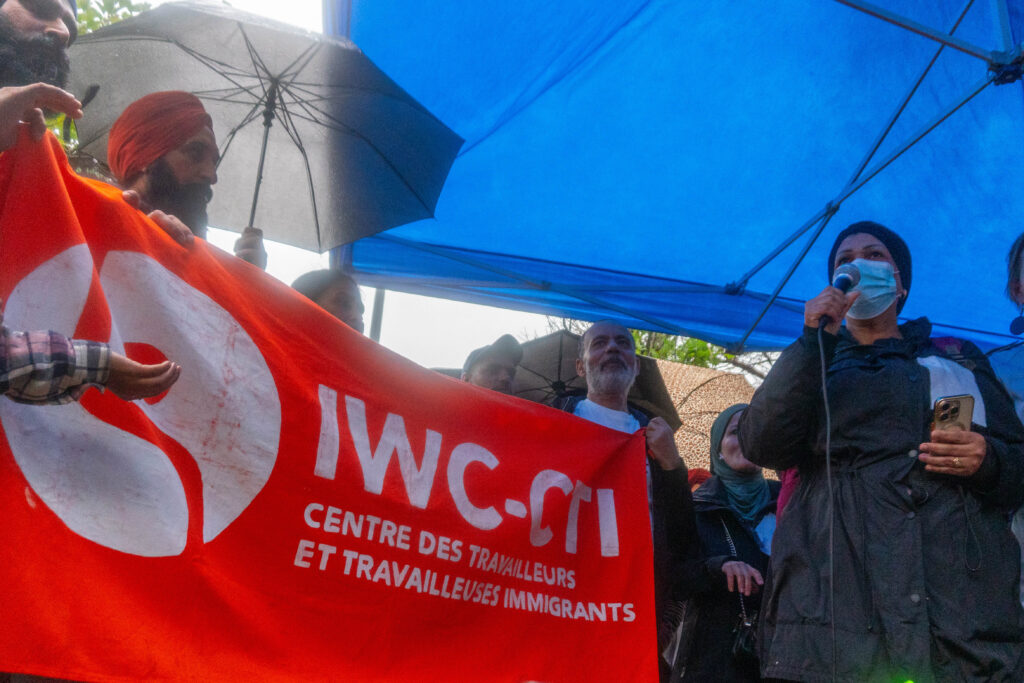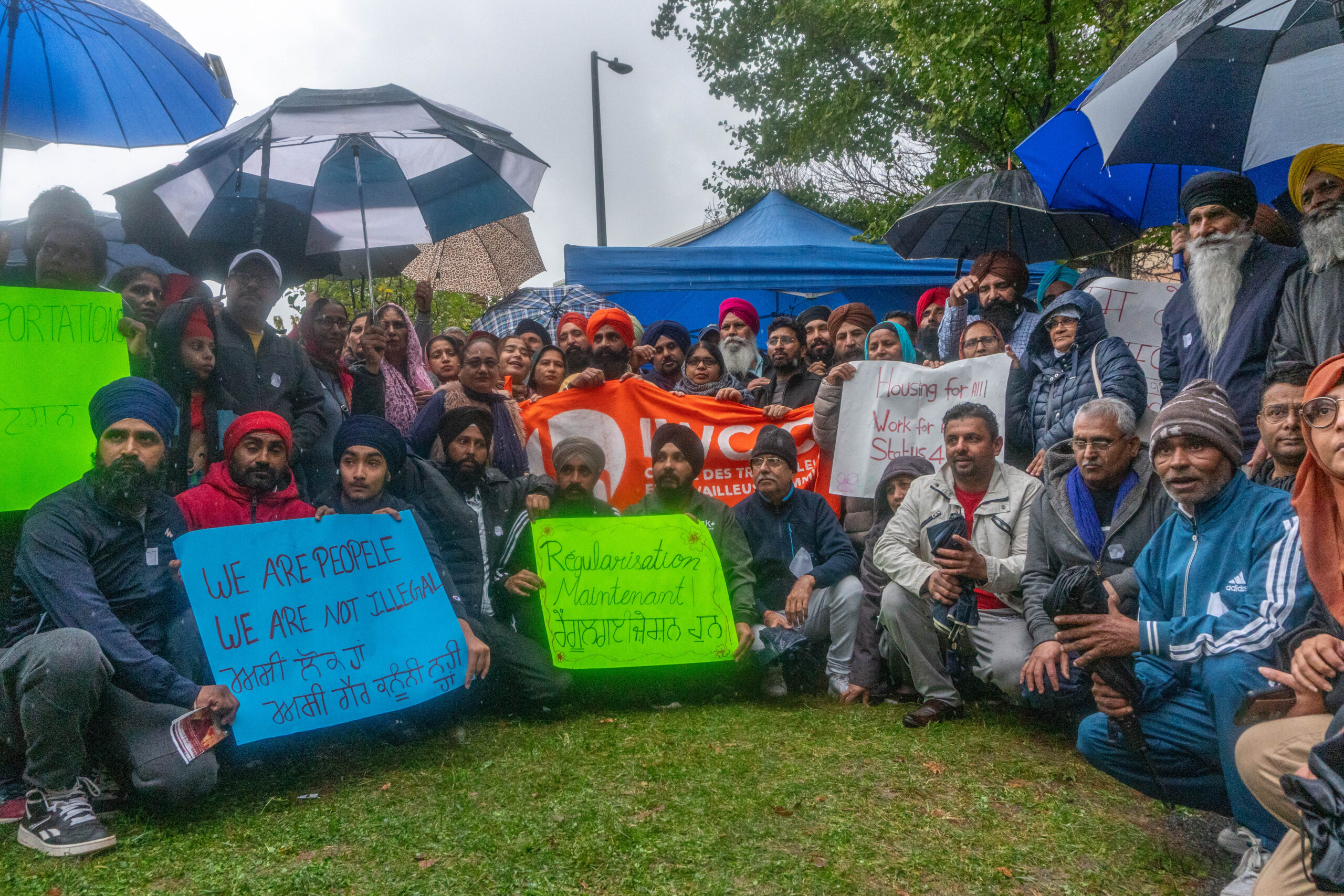This Saturday, October 21, around 100 demonstrators gathered outside the constituency office of Canada’s Immigration Minister, Marc Miller, to call for the immediate regularization of undocumented workers in the country. Despite the government’s promises and their entry into the country under the rules imposed by the authorities, tens of thousands of people have been working and contributing to the country’s economy for years, with no answers about their future.
The majority of these people without status initially entered Canada legally, but lost their status due to loopholes in the immigration system. Some had their asylum claims questionably rejected, while others lost their status by fleeing situations of violence and exploitation created by temporary closed work permits. “There are some people here who have had temporary permits for 20 years,” says Rama Diallo, Treasurer of the Conseil central du Montréal métropolitain-CSN. “What’s temporary about that?”
Issued with increasing regularity by the Canadian government, “closed work permits bind workers to a single employer and lead workers to suffer multiple situations of abuse and exploitation akin to modern-day slavery,” explains François Proulx-Duperré, of the Conseil central de Québec Chaudière-Appalaches-CSN.
The UN described these permits in the same way in September. Demonstrators called for their abolition, given that the abuses associated with these permits are well documented, as are their links to human trafficking.
Since December 2021, the federal government has been talking about creating a regularization program for undocumented migrants, but no concrete measures have been put in place to date. Union and community groups have repeatedly called for it to be carried out, but the economic benefits for companies of employing undocumented and temporary workers on closed permits seem too strong for Trudeau and his ministers to see it as a priority issue.
Mostafa Henaway, an organizer with the Immigrant Workers Center, believes that “employers are actually quite happy under this context because they have what they believe is a docile workforce, because if people had status and people had open work permits, these migrants would actually have power. And because they don’t, I think they’re actually quite content to have more migrants here, but not having the same rights as those with permanent residency.”

Rama Diallo adds that if this situation continues, “our working conditions are going to be increasingly on the cheap, because if the employer is able to go out and recruit with poor conditions, he’s going to say, ‘I’m going to turn to that population’.”
“So, when you’re unionized, you won’t be recruited because we have our rights, we know our rights. So that’s why we say that everyone should have the same working conditions, the same wages too.”
The demonstration was part of the Quebec Day of Action organized by the Quebec Campaign for the Regularization of People without Status. Some thirty organizations supported the initiative, underlining the importance of the issue on a provincial scale.
Similar rallies were held in Quebec City and Rimouski. The united labor and community organizations put forward three key demands, including the immediate implementation of a regularization program for undocumented migrants; an immediate end to deportations and detention of non-status migrants; and the abolition of closed work permits.

Be part of the conversation!
Only subscribers can comment. Subscribe to The North Star to join the conversation under our articles with our journalists and fellow community members. If you’re already subscribed, log in.